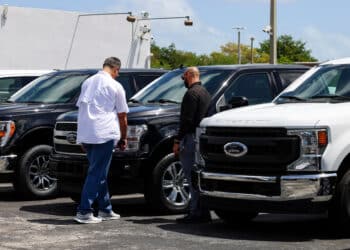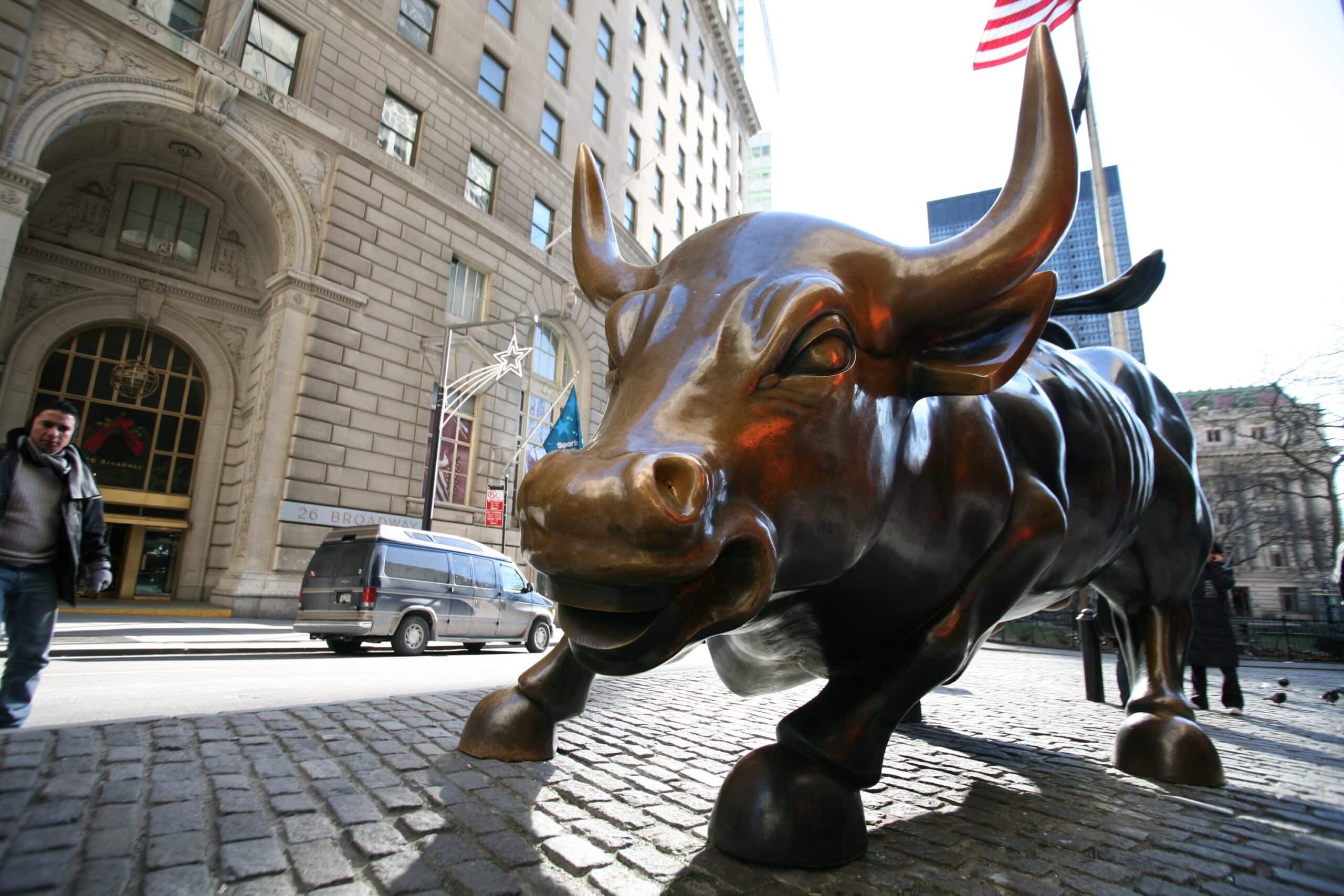Goodbye dealership, hello digital: Why I sold my car online
From the August issue:
When I first bought my 2014 Honda Civic two years ago in Dallas, I never thought I would sell it before I paid off my auto loan. My first, and only other, car was a 1996 Ford Mustang that I paid for in cash and subsequently drove into the ground.
Life happens. Auto lenders are no strangers to this fact. Auto Finance News brought me to New York, and I had to sell my car quickly.
As a consumer, geographic limitations and price were top of mind when I decided last month to skip the dealership experience and sell my car on Seattle-based online used-car marketplace Tred.
The problem was I still had the better part of $9,000 left on my auto loan, financed through American Honda Finance Corp., and quotes I received from dealers — including the Honda dealership that had sold me the car — were in line with Kelly Blue Book’s value of $7,800. Selling it through a dealer would put me upside-down on my auto loan.
To complicate the matter, being 1,500 miles away from my vehicle made it difficult to get quotes from other dealerships. I needed an option that put the smallest burden on the family members watching over my vehicle.
An online peer-to-peer marketplace checked all the boxes. Handling the finer details of the sale, such as listing the car on the platform and negotiating incoming offers, could be done remotely. The only physical requirements were a short inspection and a handful of test drives.
Not to mention, Tred valued my car at $11,200.
After listing the car at $10,800 and receiving offers from three prospective buyers, the car sold within two weeks, financed through Ally Financial. The buyer picked up the car within a few days. No fuss, no muss.
Well, almost.
A drop in the bucket
In 1996, Craigslist brought classified ads normally seen in newspapers to the World Wide Web, thereby connecting millions of people to one another to exchange goods in an unprecedented way.
Fast forward two decades, and the rising popularity of peer-to-peer marketplaces is gaining traction in the auto market, primarily thanks to lenders, said Toby Russell, co -chief executive of Shift Technologies. “People are getting more used to the idea of exchanging goods and services between individuals online,” he said.
“A critical facilitator in the auto space is the lending capability,” Russell noted, adding that the full scope of the auto market is inaccessible to many consumers without the option to finance. “In home or auto buying, people use [financing] to buy those
-
Auto Finance News & Big Wheels – Monthly Payments – Annual Commitment
$245.00 / month Sign up now -
Auto Finance News Premium
$556.00 / year with a 7-day free trial Sign up now -
Auto Finance News Premium Monthly
$49.00 / month with a 7-day free trial Sign up now -
Auto Finance News Subscription & Big Wheels Auto Finance Data Platform
$2,870.00 / year Sign up now -
Auto Finance News: Complimentary – 1 Month
$0.00 Add to cart -
Auto Finance News: Editorial Complimentary – 1 Month
$0.00 Add to cart -
Auto Finance News: Multi-user Subscription
$472.00 per member / year with a 7-day free trial Select options -
Auto Finance News: Sales Complimentary – 1 Year
$0.00 Add to cart -
Big Wheels Auto Finance Data Platform
$2,634.00 / year with 1 day free trial Sign up now -
Big Wheels Auto Finance Data Platform – Monthly Payments – Annual Commitment
$220.00 / month Sign up now -
Big Wheels Auto Finance Data Platform: Multi-user Subscription
$2,570.00 per member / year Select options -
Big Wheels: Editorial Complimentary – 1 Month
$0.00 Add to cart -
Press Release Submission
$270.00 Add to cart
Much like direct lending, the peer-to-peer marketplace is a drop in the bucket relative to traditional indirect platforms. But many would argue it’s still a worthy pursuit. The U.S. Department of Commerce estimated that 10.2% of all first-quarter retail sales occurred through e-commerce channels — totaling $137.4 billion — up from 9.4% in the prior-year period.
Since 2017, the number of vehicles financed through Shift Technologies’ single platform has skyrocketed thanks to lenders stepping into the space. “Probably 50% to 60% of our vehicle sales are financed,” Russell said, adding that 70% of dealer sales are typically financed.
“We used to say [to our customers], ‘If you want to get financing, you have to do it yourself through the direct model,’” Russell said. “But what we found was the No. 1 buyer request was, ‘Do you have financing for that?’”
Checking the boxes
Even though the peer-to-peer marketplace is becoming more popular with consumers, lenders must be mindful of the ever-lingering question of fraud.
“Part of the problem in the peer-to-peer space is its one-off transactions,” Russell said. “As a lender — and this is coming from someone who used to work at Capital One — the problem is, I get told that Mary is buying Jeff’s car for $20,000. Later, I discover Jeff and Mary are friends, and there was no car. Mary got a loan she’s willing to default on, and they run off with $20,000.”
To be clear, fraud is a legitimate problem in the space. Of the three offers made on my car in that two-week timespan, one — which was made at 10:30 p.m. at full listing price without a test drive — eventually did not pass Tred’s ID-verification process, said Tred Founder and Chief Executive Grant Feek, declining to disclose details due to legal considerations.
Still, “alternative dealerships” such as Tred and Shift are aware of the heightened risk, so they take extra precautions to protect their lender partners and the consumers who use their platform, Feek said.
Tred implements four layers of antifraud measures in each peer-to-peer transaction, verifying the buyer, seller, vehicle and payment. For instance, buyers and sellers are required to take a photo of themselves and their ID.
“We have technology that allows us to know that you’re taking a ‘selfie,’ and then we match it programmatically to the driver’s license you provide,” Feek said. The second check is to ensure the ID is real through industry standard technology that lenders have approved, such as Stripe.
Moreover, Tred scrutinizes buyers for potential red flags, such as whether their address or phone number has been associated with fraudulent activity; if they have moved a high number of times in the past five years; or if they have completed a high number of credit applications in the past year.
Tred also uses “out of wallet questions,” an industry standard in banking finance that pools previous financial information, such as old addresses, phone numbers and places of employment a customer has used on bank accounts or to secure loans, to try to weed out buyers misrepresenting their identity.
Further, Tred verifies the vehicles on its platform. “In every state we’re operating in, we work with the state to determine, ‘Does the [buyer] own this vehicle? Is it registered in [his or her] name?’ They may seem like they’re two different questions, but they’re both very important,” Feek said, adding that an audit can see the vehicle’s ownership history and tell if its title has been damaged.
Shift employs similar antifraud measures to ensure buyers’ and sellers’ identities. In addition, it puts vehicles through a 150-point inspection and does background checks to make sure there are no undisclosed issues with the vehicle or the title, Russell said.
Traditionally, lenders control against consumer fraud by holding dealers accountable. In that vein, Shift positions itself in the same way a brick-and=mortar dealer would when sending lenders contracts — through earned trust. “We’ve spent years getting to that standard for our lenders,” Russell said. “We’re originating really good paper for them — great credit profiles with better-than-average loss ratios. We try to select sophisticated customers who want to shop online to make their purchases.”
The road forward
Even though the peer-to-peer marketplace is small, auto lenders have been testing the waters.
During research for this article, AFN identified at least seven lenders that offered financing for peer-to-peer auto transactions in online marketplaces. Ally, Bank of America, Capital One Auto Finance, Santander Consumer USA, TD Auto Finance, U.S. Bank and Westlake Financial Services provide financing options with at least one online marketplace that connect consumers buying and selling vehicles.
Still, other lenders have embraced online marketplaces by connecting their dealer partners with customers who want to shop online. In May, Capital One Auto Finance, for example, partnered with CarGurus to connect consumers with vehicles.
Similarly, Nissan Motor Acceptance Corp., which works with Drive, recognized that consumers’ needs are evolving. “Today’s retail marketplace is changing rapidly across all industries, including automotive,” said Colin Cooke, NMAC’s director of financial products. “Much of [our focus] is enabling and improving technology with our dealers to improve the customer experience.” To that end, NMAC is engaged with several fintech firms to explore online options to provide consumers with the best tools to assist them with their decision-making process, he added.
Whether through peer-to-peer or more traditional online marketplaces, consumers seek expanded options for buying and selling vehicles. As the market continues to evolve, there’s a clear road forward for auto lenders.
I, for one, will buy my next car through a peer-to-peer marketplace, if only to see how the other side of the transaction plays out.
















